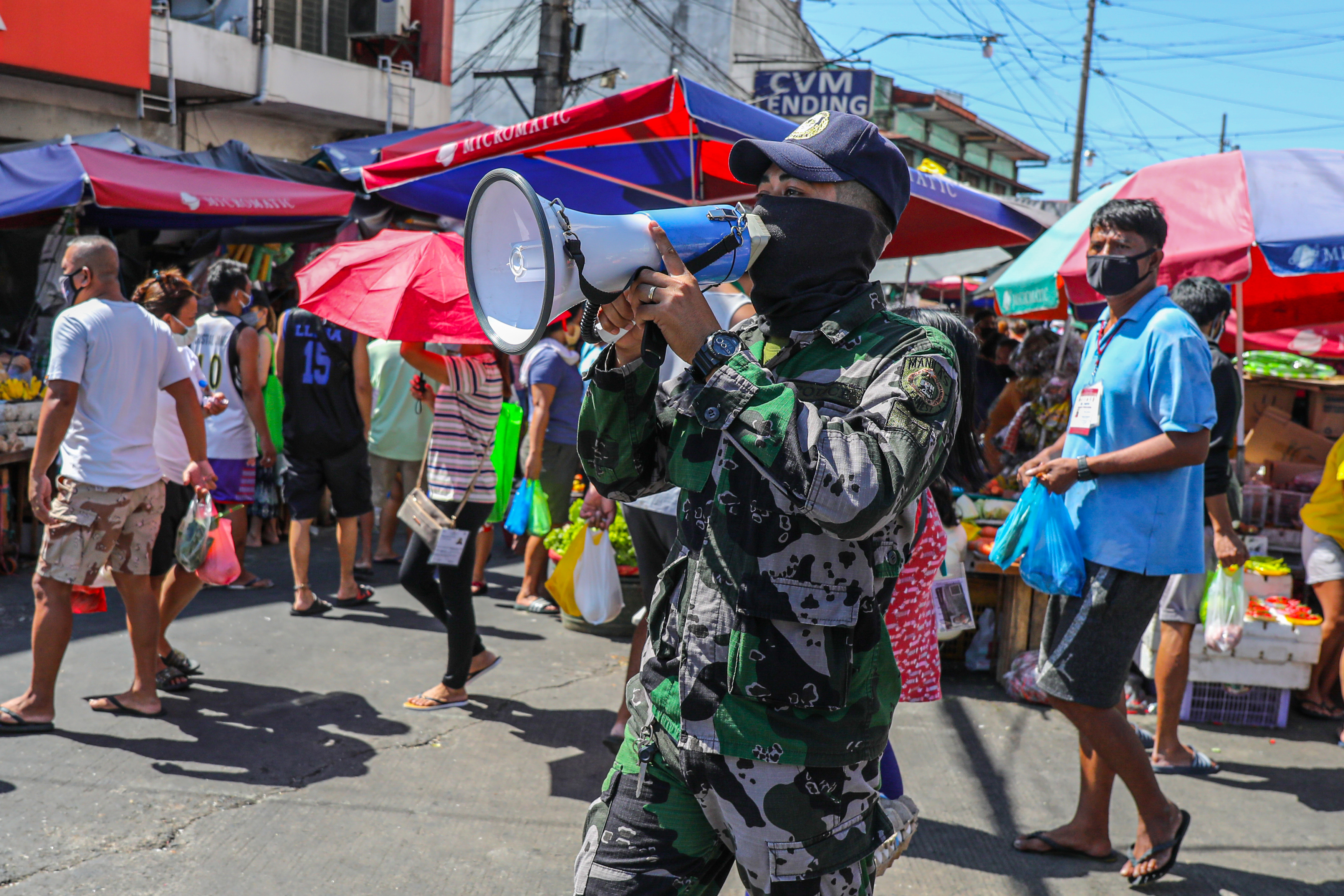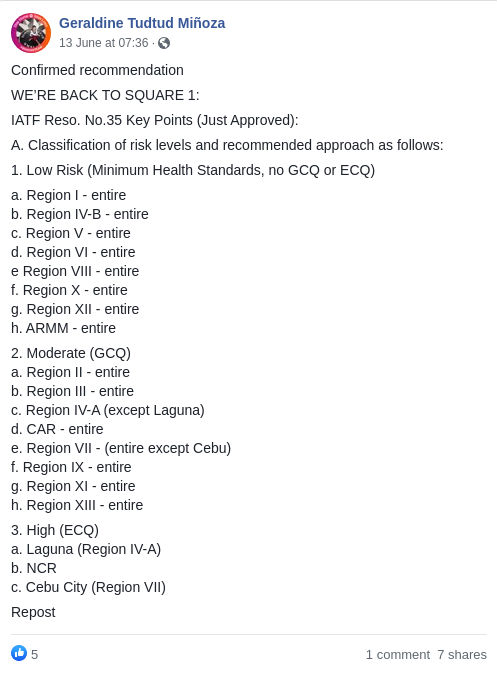
Misinformation about reimposing strict COVID-19 lockdown in Metro Manila circulates online
- This article is more than five years old.
- Published on June 17, 2020 at 11:00
- 2 min read
- By AFP Philippines
The claim, published in this Facebook post on June 13, shows a purported list of regions in the Philippines, their corresponding COVID-19 risk levels and designated lockdown measures.

According to the post, areas in the Philippines are divided into categories of low, moderate and high COVID-19 risks. Under the Philippine government’s guidelines, areas with moderate risk are subjected to general community quarantine (GCQ) and those with high risk are under enhanced community quarantine (ECQ), which comes with more movement restrictions.
The claim alleges that IATF, the country’s Inter-Agency Task Force on Emerging Infectious Disease, has put three areas back under ECQ following lockdown easing in mid-May.
Those areas include the NCR, the National Capital Region commonly known as Metro Manila; Cebu, a city on the island of Cebu; and Laguna, a province southeast of the capital Manila.
Identical claims were also shared on Facebook here, here, here and here.
However, the claims are misleading.
On June 15, the government announced here that while Cebu would revert to ECQ, Metro Manila and Laguna would remain at GCQ until at least the end of June.
The Philippine government also published an image of the misleading claim here on its COVID-19 website with a superimposed stamp that states: “FAKE NEWS”.
The government added that the latest IATF resolution is numbered 45, not the “just approved” no. 35 as the misleading claim states.

A copy of IATF's resolution no. 35, issued on May 11, 2020, can be viewed here.
While the document presented similar categorisation for various Philippine regions, it placed Metro Manila, Laguna and Cebu under “modified ECQ”, a slightly more relaxed version of ECQ, until at least the end of May.
Copyright © AFP 2017-2026. Any commercial use of this content requires a subscription. Click here to find out more.
Is there content that you would like AFP to fact-check? Get in touch.
Contact us
